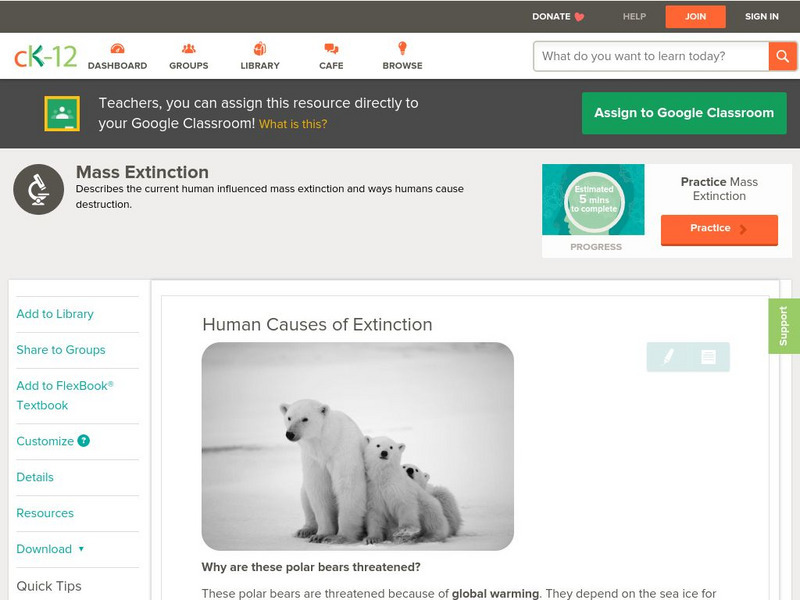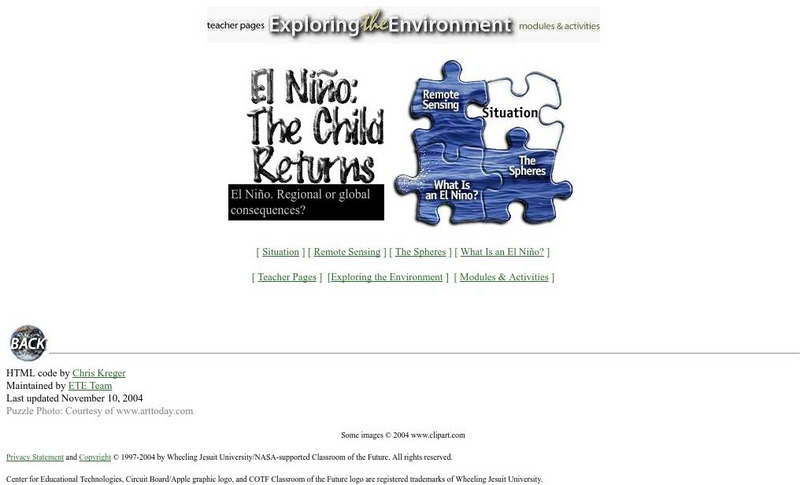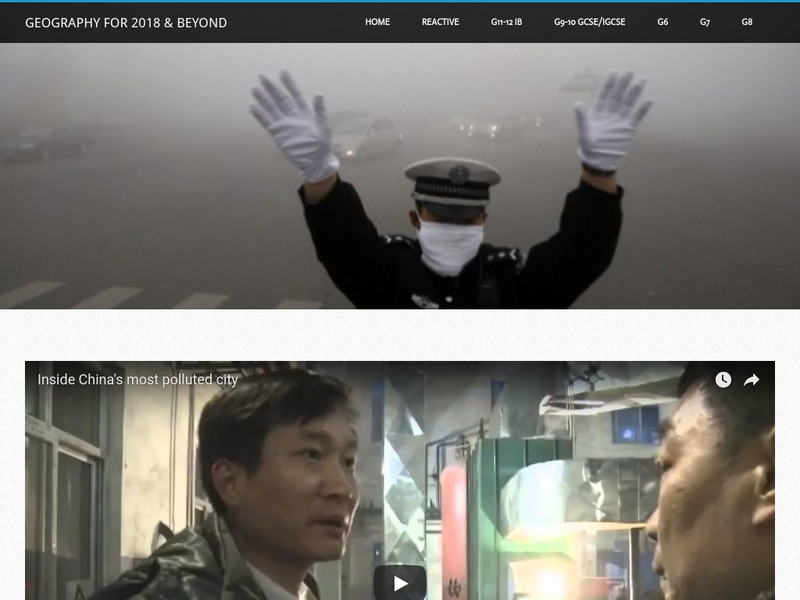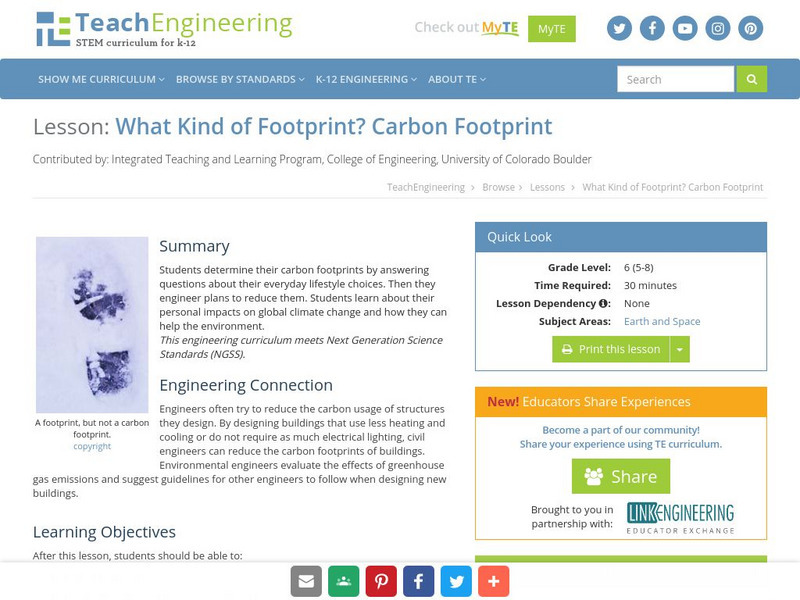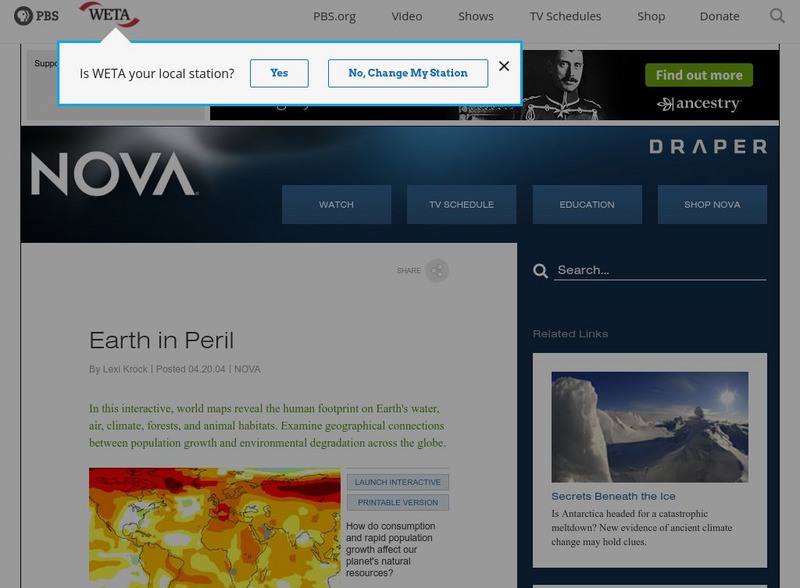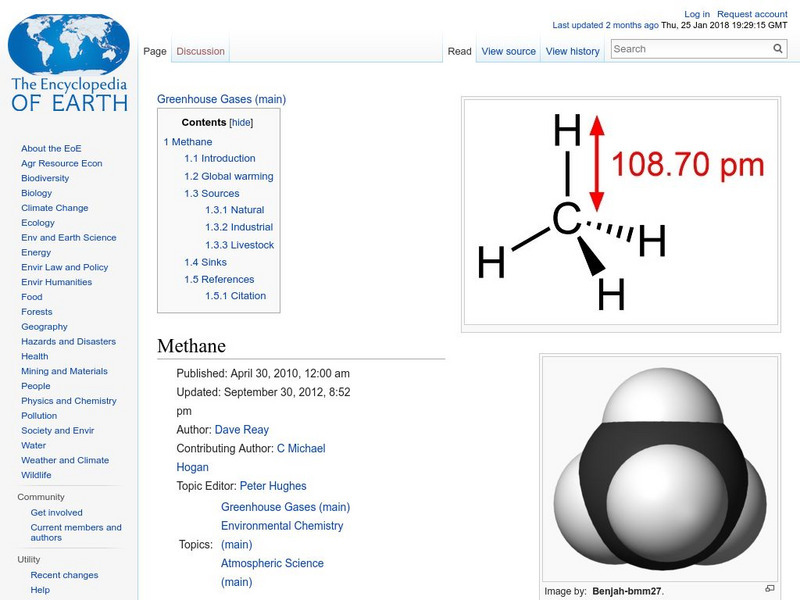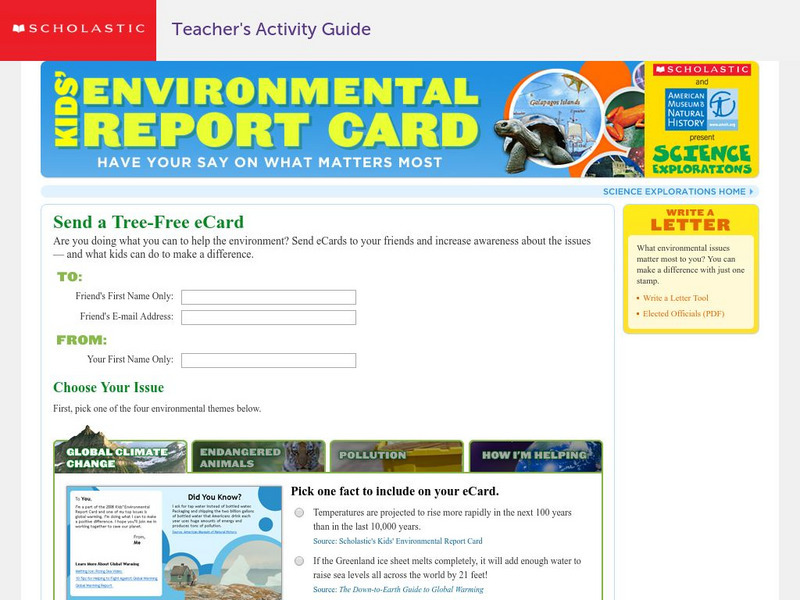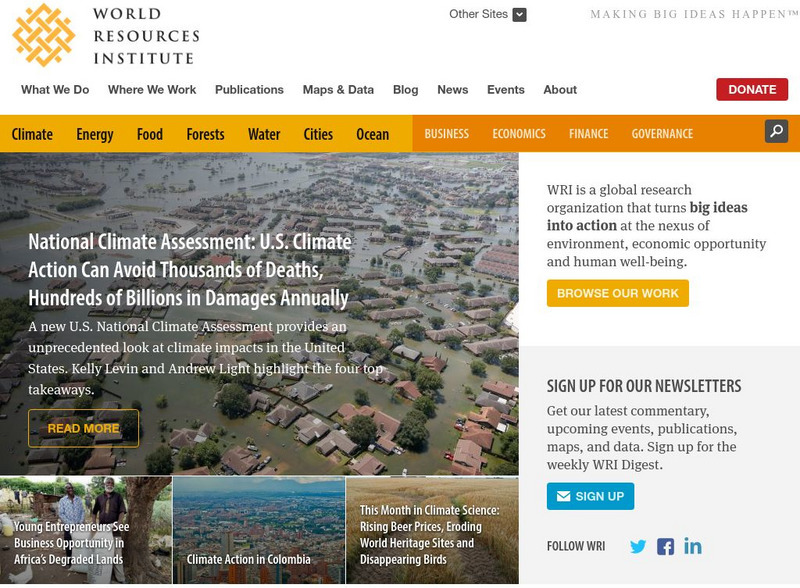Science Buddies
Science Buddies: Swimming in Acid: Understanding Ocean Acidification
The oceans are a precious natural resource, part of Earth's carbon cycle. But what happens if the oceans absorb too much carbon dioxide? Many scientists are concerned that the increased absorption of carbon dioxide is causing them to...
PBS
Pbs Learning Media: Choosing Earth's Climate Future
Students focus on the three interconnected choices global society faces as Earth's climate continues to change -- suffer, adapt, and mitigate -- to analyze and predict current and future impacts to Earth's systems. Using videos excerpted...
National Center for Ecological Analysis and Synthesis, University of California Santa Barbara
University of California: A Global Map of Human Impacts to Marine Ecosystems
Maps in different categories such as fishing, climate change, and pollution were pulled together into a composite map that shows the impact of humans on the world's oceans. Analysis at the time (2008) showed that 40% of the world's...
CK-12 Foundation
Ck 12: Life Science: Human Causes of Extinction
[Free Registration/Login may be required to access all resource tools.] In addition to habitat destruction, other human-caused problems are also threatening many species. These include issues associated with climate change, pollution,...
Annenberg Foundation
Annenberg Learner: The Habitable Planet: Carbon Lab
An interactive lab simulation demonstrates the effects of increased carbon in the atmosphere and how that increase contributes to climate change. A data table for student records is available for download.
Center for Educational Technologies
Exploring the Environment El Nino: The Child Returns
Use remote sensing data and background information to look at regional and global consequences of El Nino. Try working with the 'situation' to test your understanding.
Geographypods
Geographypods: Theme 3: Economic Development: Environmental Risks and Benefits
This learning module looks at the impact of economic development on the environment. It begins with a look at a serious pollution problem in China, then looks at waste reduction and climate change. Includes an animation, images, and videos.
University Corporation for Atmospheric Research
Ucar: Why the Polar Vortex Keeps Breaking Out of the Arctic
Why does the Polar Vortex keep breaking out of the Arctic? Surprisingly, warming global temperatures play a role.
TeachEngineering
Teach Engineering: What Kind of Footprint? Carbon Footprint
Young scholars determine their carbon footprints by answering questions about their everyday lifestyle choices. Then they engineer plans to reduce them. Students learn about their personal impacts on global climate change and how they...
PBS
Nova: Earth in Peril
A series of nine maps with accompanying explanations. They show how population growth has affected the environment around the world in terms of water availability, climate change, land and forest use, and more. There are both interactive...
PBS
Nova: Extreme Ice
Students study how scientists monitor changes in Earth's glaciers, ice caps, and ice sheets. They investigate about glacier locations, glacial movement, and impacts of climate change on glaciers depending on the depth of research.
US Geological Survey
Lake Baikal: A Touchstone for Global Change
This site is an interesting article about Lake Baikal in Russia. This unique lake is helping scientists to learn more about the patterns of ecological change in the world and about the history of the world.
PBS
Pbs Learning Media: Greenland Mass Variation Since 2002
Scientists study ice sheets because they influence weather and climate, playing a role in atmospheric and ocean circulation. Ice sheets can also have huge impacts on global sea levels because they store so much water. Explore this...
Encyclopedia of Earth
Encyclopedia of Earth: Physics & Chemistry: Methane
Article explaining what methane is, its impact as a greenhouse gas on global warming, and natural and man-made sources of methane. (Published: April 30, 2010)
Center for Educational Technologies
Nasa Classroom of the Future: Coral Reefs: Dissappearing Resource
Why are the reefs disappearing? Use this site to explore the science behind the issue. Useful at several grade levels.
University Corporation for Atmospheric Research
Ucar: Warming of the Polar Regions
While global average temperature has risen above the 1950-1980 average, our planet's polar regions are experiencing warming at a faster rate than other places.
Climate Literacy
Clean: Coral Bleaching: A White Hot Problem
Students investigate coral bleaching using water temperature data from the NOAA National Data Buoy Center. Then they learn about the habitat of corals, the stresses on coral populations, and the impact of increased sea surface...
University Corporation for Atmospheric Research
Ucar: Sea Ice and Heat: A Vicious Cycle
Melting sea ice doesn't cause sea level to rise because the ice is already in the ocean, but it does cause other changes to the planet. When sea ice melts, more sunlight is absorbed by the Earth, which causes more warming. It's a vicious...
Scholastic
Scholastic: Science Explorations: Kids' Environment Report Card
Cast your vote on the important environmental issues. Associated with each issue, there are at least three links to sites which can further your understanding of the issue. To encourage others to respect the environment, you can also...
Soft Schools
Soft Schools: Biodiversity Quiz (Ecological Problems)
Take an interactive quiz over ecological problems affecting the environment. After completing the quiz, check your score, and then revisit any incorrect question for further review.
Other
World Resources Institute
The World Resources Institute is a non-profit environmental organization. They monitor environmental degradation around the world, such as from deforestation, and work at promoting development that is environmentally sustainable.
US Geological Survey
Usgs: Earth Surface Dynamics (Research Activities)
This site from USGS provides several activities to help understand the interrelationships among earth surface processes, ecological systems, and human activities. Also included are links to new findings and programs concerning Earth...





